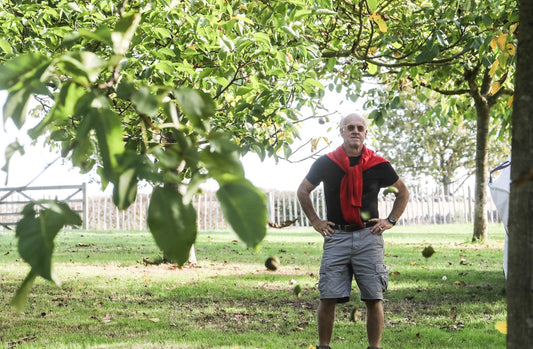Sharpham Park are excited to announce that Walnuts, have been listed as a food source in the 'Future Top 50 Foods' by Knorr and WWF-UK. This is a testament to our commitment to sustainable, organic farming practices now and in the future.
The list of Future 50 Foods, consisting of vegetables, grains, cereals, seeds, legumes and nuts from across the globe, has been developed to inspire greater variety in what we cook and eat. It is intended to enable three important dietary shifts. First, a greater variety of vegetables to increase the intake of vitamins, minerals and antioxidants. Second, plant-based sources of protein to replace meat, poultry and fish, resulting in a reduced negative impact on our environment. Third, more nutrient-rich sources of carbohydrates to promote agrobiodiversity and provide more nutrients.
By making a conscious choice to consume more of the Future 50 Foods, we take a crucial step towards improving the global food system. Swapping staples like maize and white rice for fonio or spelt increases the nutrient content of a dish while contributing to greater agrobiodiversity, making our food supply more resilient. It also helps safeguard these ancient variants for future generations.
At Sharpham Park, we are dedicated to growing the finest organic walnuts, which have been recognised as a future sustainable top food. Walnuts are a nutritious nut that is high in healthy fats, protein, and fibre. They are also a good source of vitamins and minerals, including vitamin E, magnesium, and potassium. Walnuts have been shown to have a range of health benefits, including reducing the risk of heart disease and improving brain function. Our organic walnuts are grown using sustainable farming practices that protect the health of the soil and the surrounding ecosystem. The orchard provides grazing for our flock of Shropshire Sheep and in return, they naturally fertilise the soil.
We believe that our spelt and walnut products are an excellent choice for anyone who is looking for alternative, healthy, sustainable, and delicious foods to incorporate into their diet.
The Future 50 Foods have been selected based on their high nutritional value, relative environmental impact, flavour, accessibility, acceptability and affordability. This set of criteria is modelled after the Food and Agricultural Organization’s (FAO) definition of sustainable diets. Some of the Future 50 Foods have higher yields than similar crops, several are tolerant of challenging weather and environmental conditions, and many contain significant amounts of critical nutrients.
“The search for nutrient-dense plants has taken us toward ancient grains, heirloom plant varieties, and less commonly cultivated crops. There is a good reason for rediscovering some of the forgotten plants.”
- Dr. Adam Drewnowski, Director of The Center for Public Health Nutrition, University of Washington
Download the full ‘The Future 50 Foods’ report here: https://www.wwf.org.uk/sites/default/files/2019-02/Knorr_Future_50_Report
Reference
NutHealth.org. 2017. Walnuts. Available at: https://www.nuthealth.org/walnuts/





